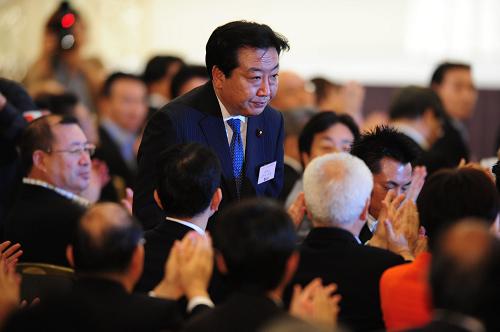Yoshihiko Noda to become next Japanese PM
 0 Comment(s)
0 Comment(s) Print
Print E-mail
China.org.cn, August 29, 2011
E-mail
China.org.cn, August 29, 2011
Finance minister Yoshihiko Noda is almost certain to become Japan's next prime minister after he?defeated economy, trade and industry minister Banri Kaieda in a run-off to win the ruling Democratic Party of Japan (DPJ) presidential election Monday, Xinhua reported.
Noda, 54, will become the third prime minister since Democratic Party of Japan (DPJ)?came into?power in a historic general election two years ago, as well as Japan's sixth premier in just five years.
Noda, a fiscal hawk,?won 215 ballots out of the total of 392 valid votes.?Kaieda,?who is backed by DPJ powerbroker Ichiro Ozawa who has the largest intraparty faction, won177 votes.
Kaieda led in the first-round voting. But both of them faild?to win the majority in the first-round voting.?
The election is boiled down to the fierce competition of supporters and enemies of Ozawa, dubbed as the "Shadow Shogun" who masterminded DPJ's victory to power.
Ozawa himself was barred from voting as his membership was suspended following indictment earlier this year over a political fund scandal.?
Noda, who has vowed to cut public debt through fiscal reforms, including a proposed increase in the 5 percent sales tax, supports?the?DPJ forming a grand coalition with opposition parties.
Noda has said that he supports reducing Japan's reliance on nuclear power but cannot envision a Japan entirely free of nuclear energy.
His foreign policy initiatives may be thwarted following controversial comments made about Japanese wartime leaders.
This year on the anniversary of Japan's World War II surrender he said that Japanese Class-A war criminals were in fact not war criminals.?
Noda will have to cope with challenges including reviving a stagnant economy, rebuilding the areas?devastated?by the earthquake and tsunami, ending the nuclear crisis since Chernobyl in Fukushima, arresting a surging yen which threatens export, and seeking cooperation from opposition parties in a divided diet.?
Naoto Kan, whose approval rating tumbled following the devastating March earthquake and tsunami, announced his resignation as the Prime Minister last week.
The resignation fulfilled his promise to step down after parliament approved two pieces of legislation, including one related to post-earthquake reconstruction.
Kan had been under pressure to resign since the March 11 earthquake and tsunami, and subsequent nuclear crisis in the nation.






